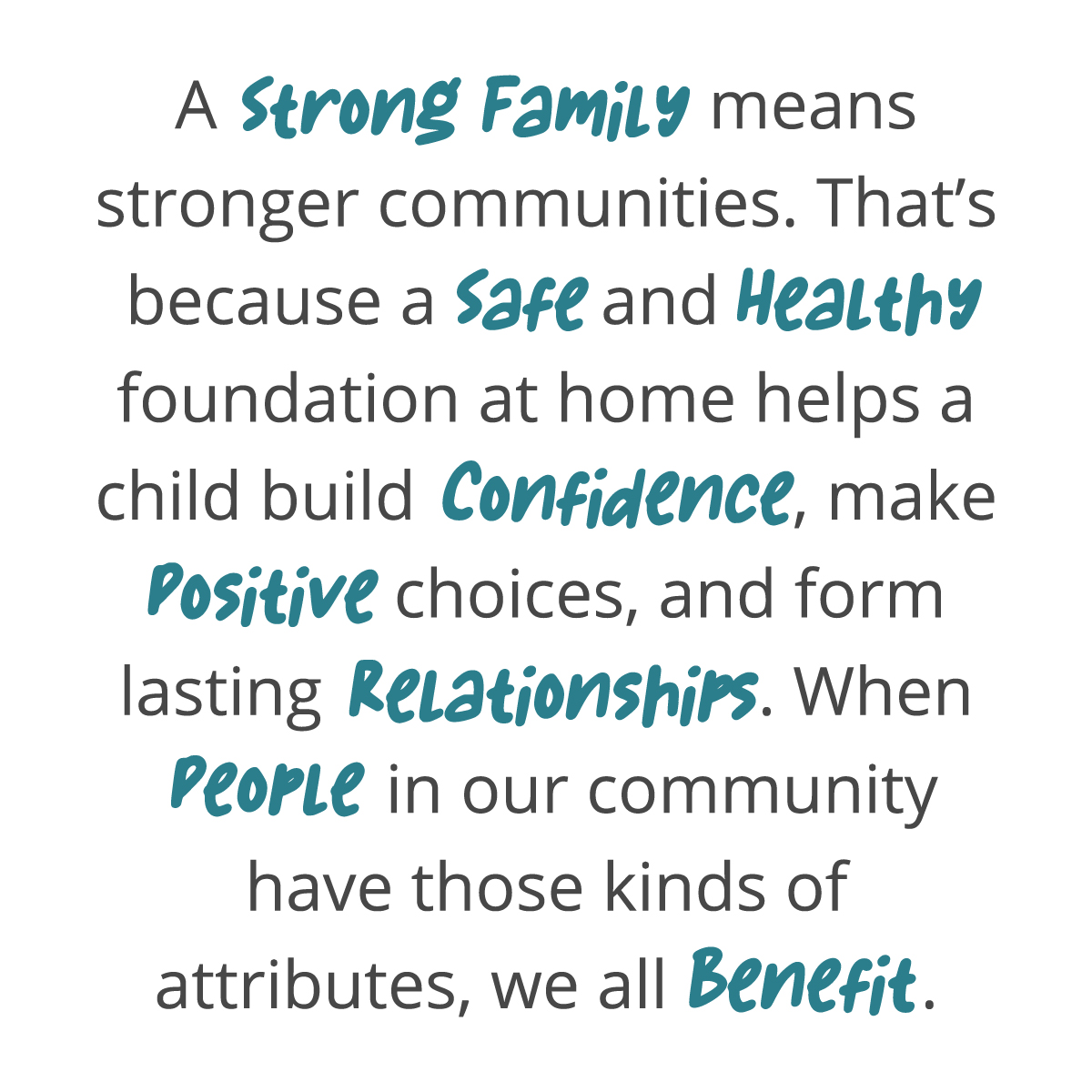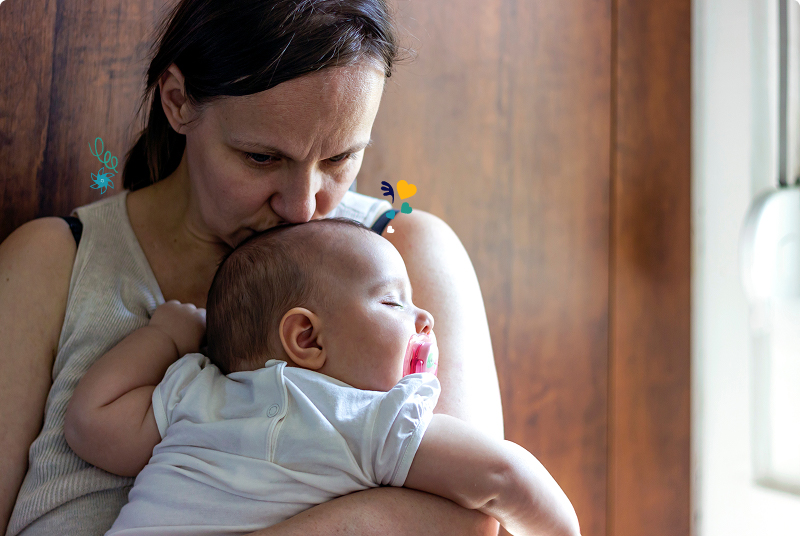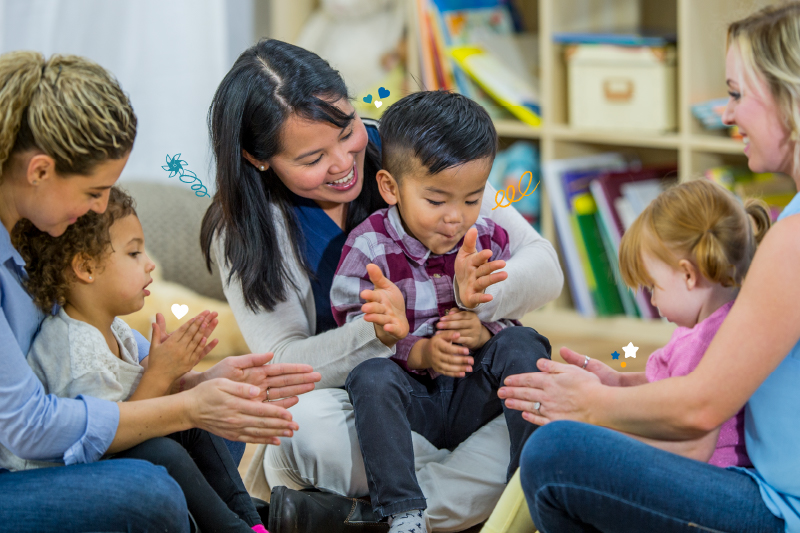
Resources for parents
We know parents and caregivers make the best decisions for their children if they have the information they need. Year after year, data directly from Utah teens opens in a new tab show parents are the most important influence in their kids’ lives.
You often don’t know ahead of time what types of challenges you will face in life. However, research shows there are certain things you can do in your everyday life to prepare your kids and family with the skills and support they need to get through anything— and overcome the odds that could otherwise lead to tragedy.
What you do in your home and with your family matters—to your kids and to our communities. Children feel safe and are able to reach their full potential when families and communities are strong.

How do you build a strong family and strong community?
Strong families and strong communities go hand in hand. Children thrive when families feel supported. And everyone feels safer and more connected when neighbors look out for each other.
Start with your family.
Kids feel loved and secure when you spend time together, listen to each other, and keep routines—like family meals or bedtime stories. It teaches children how to handle challenges when you stay calm during tough times and ask for help when you need it.
Reach out in your community.
You can make your community stronger if you know and help other people. Don’t know where to start? It’s easy to get to know the people in your community and build connections:
- Say hello to your neighbors.
- Go to school or community events.
- Join local groups or volunteer.
Research shows strong social ties reduce stress, improve mental health, and lower the risk of child abuse and neglect. Everyone benefits when families and communities support each other. These small actions create trust and support that can help families stay strong and bounce back from hard times.
What can you do to help someone else?
Many people won’t ask for help— even if they need it. Think about people in your life or community who have new babies or young kids, and offer help. Sometimes we say things like “Let me know if you need anything.” We mean well, but many times people don’t want to seem like a burden to others. So instead, say things like, “I’ve been wanting to bring you dinner. When is a good day?”
Be someone others can trust and feel comfortable coming to for help. Strengthening families prevents child abuse and neglect. Parents and families need to feel safe to seek support and not feel judged. We all take turns needing help.
Information about resources and services are available at https://dcfs.utah.gov/prevention/ opens in a new tab.
Other resources for parents

What is parental resilience?
Sometimes life is really hard. Parental resilience is how well you manage stress, recover from things that are hard, and handle everyday challenges.

Parenting skills and understanding child development
Kids need the skills and ability to form safe, stable, and nurturing relationships for their emotional development and mental health.

Social connections
Having strong, positive relationships with others is one of the best ways to protect children and support families.

Social and emotional competence of children
Children who can express their feelings, manage their emotions, and build healthy relationships are better able to cope with life’s ups and downs.

Concrete supports
Families are less likely to experience stress that can lead to crisis when they have access to basic needs—like food, housing, health care, and child care.

Connect with your family
What you do in your home and with your family matters—to your kids and to our communities. Strong family connections provide the foundation for children to thrive.